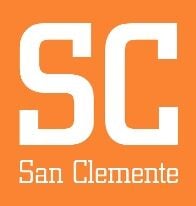Donna Gilmore, San Clemente
San Onofre Nuclear Generating Station’s (SONGS) nuclear waste thin-wall canisters can crack and leak in the short-term. Southern California Edison has no method to prevent or stop radioactive leaks. Edison and the Nuclear Regulatory Commission (NRC) refuse to require proven thick-wall casks that can be inspected (inside and outside), maintained, repaired and monitored to prevent leaks—requirements we would expect for a car. The public and elected officials need to know they cannot trust the NRC nor Edison to protect our safety. SONGS spent fuel must be inspected and stored in thick-wall casks before it can be safely transported. To do otherwise risks permanent evacuation of our communities.
Fifty-three canisters are already loaded, some 15 years old, each holding roughly a Chernobyl nuclear disaster. The NRC admits once a crack starts it can grow through the wall in 16 years. If water enters canisters, they will go critical—an uncontrolled nuclear fission reaction. They assume there won’t be cracks by making the unbelievable claim there isn’t enough humidity at SONGS to corrode the metal, ignoring frequent fog and on-shore winds and surf.
A 2-year-old Diablo Canyon canister has conditions for cracking. No one knows if it’s cracked because they cannot inspect for cracks. A Koeberg nuclear plant tank leaked in 17 years. The NRC said these are comparable to SONGS canisters.
SONGS has high burnup fuel, which burns longer in reactors and causes fuel rods to become brittle. The NRC is still studying whether they will fail in transport. The NRC engineers said high burnup fuel in aging canisters must be inspected before transport. Edison has no way to inspect welded canisters. The NRC says canisters cannot be shipped with cracks. Edison cannot inspect for cracks.
High burnup fuel creates metal hydrides. Five percent air in canisters can trigger a hydrogen explosion.
Edison’s response is to ask their AREVA vendor to reduce safety standards (NRC Amendment 4) to reduce reporting radiation levels from outlet air vents, where radiation levels would be highest, and to demolish empty spent fuel pools as part of decommissioning to eliminate Edison’s only method to replace failing canisters.
Thick-wall casks are the only option. Learn more at www.sanonofresafety.org.

